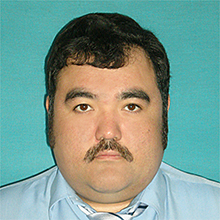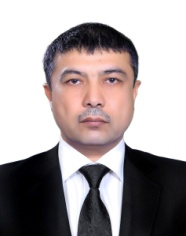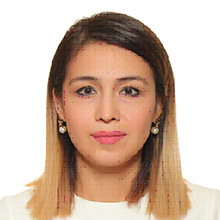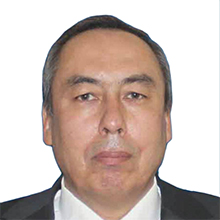Social science
“Social science” (http://journals.uz/en/journals/soci) is an electronic journal designed to promote the development of sociological sciences. Specialization of the journal is sociological sciences. In the electronic journals will be published articles by national and foreign authors on contemporary achievements, innovative ideas and future perspectives in the field of scientific and practical sociological sciences.

Editorial board
Seitov Azamat Pulatovich – Candidate of Sociological Sciences

Stephan Nikolov, PhD, Senior Research Fellow, Institute of Sociology, Sofia

Victor Aghajanyan Professor of sociology at Arizona state University USA

Shaikhislamov Rafael Badrutdinovich. Doctor of social Sciences, Professor, head of the Department of “Sociology and youth work” of Bashkir state University

Komil KALANOV – Candidate of Sociological Sciences, Associate Professor

Sabirova Umida Farhadovna – Candidate of Sociological Sciences

Matibaev Tashpulat Baltabaevich –Doctor of Philosophy

Sabirov Alisher Tursunovich – candidate of historical sciences, associate professor

Antonio Alonso Marcos – Ph. D. on International Relations
Email: aalonso@ceu.es

Rozhanskiy Mikhail –Doctor of Philosophy
E-mail: mr1954@yandex.ru

Tamar Tamarashvili – Member of the Representative Board of Iakob Gogebashvili Telavi State University
E-mail: tamar.tamarashvili@tesau.edu.ge
General state.
The editorial board of the magazine accepts articles, reviews of scientific conferences, reviews and other materials. As articles, original translations and materials from the sociological and humanitarian heritage can be submitted.
For doctoral PhD (if necessary) and student (necessarily) work requires a written review for them from the supervisor.
The editors consider only manuscripts that were not previously published either in print or in electronic form.
At the same time, the editors reserve the right to reject, abbreviate and edit the articles. All manuscripts are reviewed and edited. At all stages of preparing the manuscript for publication, the editorial staff interacts with the author. Editorial revision is subject to agreement on the author’s pre-determined desire.
The editors do not give a firm timetable for the publication of the submitted works, since the time from the registration of the manuscript in the editorial office to its publication is related to the technological process of publishing the journal.
All rights to the materials published in the journal belong to the editors and authors.
Fees are not paid.
Published materials may not reflect the point of view of the founders, editorial board and editorial staff. Publications of the journal cannot be reproduced in any form in other publications without the written permission of the editors.
Full-text versions of the articles are published in free access on the journal’s website.
On emerging issues, please call the editorial office:
+998944040000 or by e-mail: info@tadiqiqot.uz
Authors:
By submitting the manuscript to the editor, the authors undertake not to publish it in any other publication without the written consent of the editors.
The authors guarantee that the results of the research presented in the manuscript provided are obtained as a result of personal research work, are not borrowed, are not plagiarism, rephrasing, appropriation of the results of others’ research.
The authors are responsible for the selection and reliability of the facts, citations, statistical and sociological data, names of their own, geographical names and other information.
As co-authors of the article should indicate the persons who made a significant contribution to the study. Indication of the number of authors who did not make an intellectual contribution to the study is a violation of copyright and ethical standards.
The author is obliged to indicate the sources of all citations, figures and other information cited in the article.
If the author finds significant errors or inaccuracies in the article at the stage of its consideration or after its publication, it should notify the editorial office of this as soon as possible. In this case, the clarifying information is published in the nearest issue.
Information on the research methodology should be stated in one of the options:
a special section (paragraph) of the article (but not in the annotation);
directly in the text;
in a footnote;
in the note to the article.
This information may include the following information:
– name of the organization conducting the research;
– dates of the research (field works);
– the sources of information used, the empirical basis of the research;
– structure of the general population;
– type (type) of the sample, its volume (number of respondents interviewed, participating in focus groups, etc.), information on sample repair, sampling error;
– description of methods of data collection (questioning, interviewing, observation, experiment, content analysis);
– description of methods of data analysis;
– authorship of methodical tools (fully or partially author’s, use of the results of colleagues);
– an indication of the exact wording of the questions, as well as their forms (open, closed, semi-closed, etc.).
A brief summary of positive and negative methodological experience is welcomed. When preparing the tables, it should be indicated whether percentages are considered as a percentage of the number of respondents to this question or from the totality of the respondents. Along with indicating the percentage it is important to indicate the total number of units of observation.
The authors are obliged to indicate the sources of citations given in the article, statistical data and other information; abbreviations should be explained.
Editorial staff.
Decision on the conformity or inconsistency of the manuscripts received to the editorial office, the concept and the subject of the journal is the prerogative of the editorial board and the editorial board of the journal.
The names of the reviewers were not disclosed. In case of refusal to publish, the editorial board does not enter with the authors in the discussion.
When reviewing received manuscripts, the editors are guided by the following criteria:
– methodological and methodological validity;
– statement of the scientific problem, its relevance from the point of view of solving scientific problems that relate to the problems and the profile of the journal;
– reliability and credibility of the data.
– originality, independence, novelty, interesting and / or discussion approaches;
– theoretical substantiation of the selected topic;
– the presence of scientific controversy;
– level of literary text;
– conciseness, harmony and logic of argumentation;
– contain references not only to the history of the problem, but also to the modern research on the topic under discussion
– compliance with the requirements for registration.
The manuscript.
The editorial board accepts manuscripts up to 40 thousand characters with spaces (including an abstract, key words in Russian, and a block in English).
At the beginning of the manuscript, there should be given following information after the title:
– information about the author (authors): Full name (in full), academic degree and academic title, job title, position, contact phone number, e-mail address, city;
– annotation and list of keywords (no more than 10) in Uzbek, Russian and English.
For short reviews and materials, abstract and keywords are not required. After the main text of the article, a list of literature, a block in Russian and English, and figures are given. At the same time, if the text is in Uzbek, then the block is given in Russian and English, if in Russian it is in Uzbek and English, if in English it is Uzbek and Russian.
Abstract – a summary of the main ideas and results – should reflect the content of the article and the results of the research. It should be structured (follow the logic of describing the results in the article). The volume of 80 to 200 words. It is not necessary to repeat verbatim in the article what has already been said in the annotation.
Notes in the article are given in footnotes.
The foreign language part of the article is obligatory when submitting the manuscript, it is located at the end of the article and contains the following structural elements:
Title of the article;
affiliation (organization, country),
author’s certificate – Name Patronymic Last name (in Latin alphabet in that order), rank, position, place of work (if several places, then indicate all), academy, city, country, e-mail in brackets.
Abstract – the abstract should be expanded to reflect the main content of the article and the results of research (within – 200-250 words) keywords (separated by a comma of not more than 10 words)
Separate requirements for the manuscript.
Each manuscript is submitted electronically, available for editing.
Manuscripts will be sent to the electronic address (info@tadqiqot.uz) in * .doc format (Word for Windows, with text formatting in width, 14 pins in 1.5 spacing,). Obligatory requirement is the absence of page numbering.
Reviews of conferences and other scientific events can be sent no later than six months from the moment of their holding. The text should contain information about the organizers of the conference, the place and date of the conference. For all the participants mentioned, their names and surnames are indicated, and in the brackets the place of work and the city, for the participants of international conferences – also the country. The main attention is paid to the content of reports, speeches that develop and enrich sociology. The journal review cannot be reduced to a simple listing of the reports presented.
In the review it is necessary to indicate the complete data of the discussed book, including the publisher and the page volume. The review should not contain an abstract of the book; it is necessary to give an analysis of those ideas that claim new knowledge, as well as a polemic with a well-reasoned discussion of the discussion points.
The magazine accepts polemical notes.
The magazine publishes translations. The translator must agree on the publication rights with the publisher of the original. It is advisable to accompany the translation or archival material with a foreword. The comment of the publisher or interpreter is given in the format of endnotes. The text of the manuscript should be given by the author in accordance with stylistic, spelling, syntactic norms.
A manuscript containing a description of the results of empirical sociological studies should present the research methodology (including using data from other research centers and organizations).
Bibliographic section.
The list of used sources is made in the form of a bibliographic list in alphabetical order row. When quoting, a page from the source must be specified.
The final part.
The interaction of the author, the editorial board and the editorial staff of the journal is based on ethical scientific norms, which implies:
the publication of articles that meet scientific standards,
publications on current theoretical and empirical issues,
the opportunity to express author’s points of view,
the journal primarily represents sociological science,
publication of articles on sociological and socially significant topics.
The revision assumes that the author does not use material that is plagiarism. The author has the right to withdraw the article at any stage of its consideration with a mandatory notification to the editorial office.
Libel and insulting statements against other authors and publications are inadmissible.
The reviews should be prepared objectively.
The editor evaluates only the intellectual content of the manuscript irrespective of the status and other characteristics of the author.
